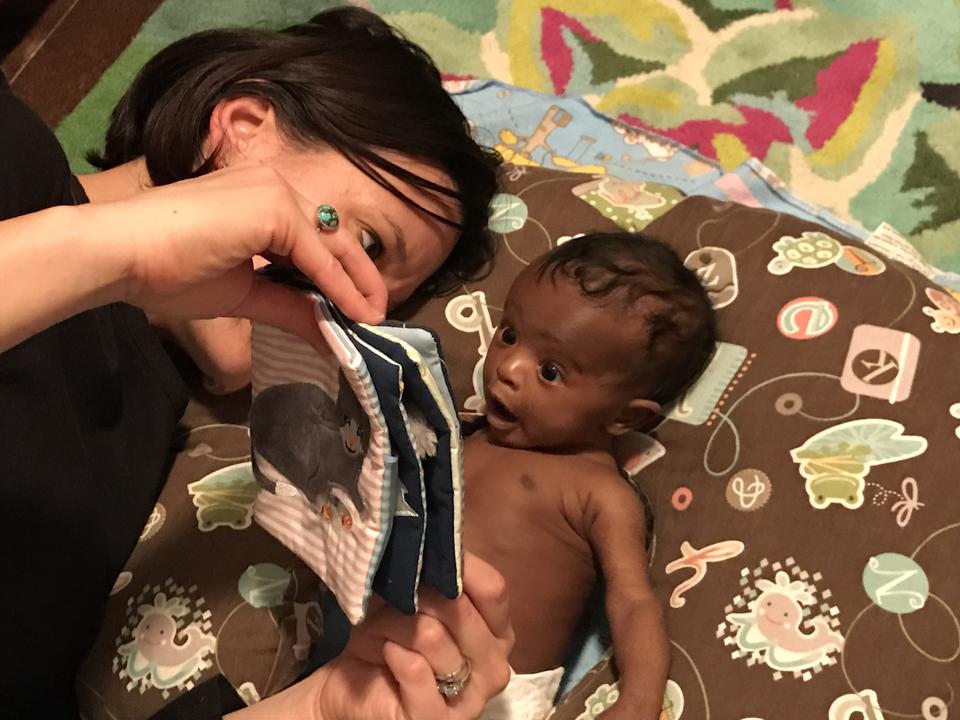
Have you heard of the Word Gap?
The Word Gap is a term that represents how many fewer words babies are exposed to in their first three years when parents don’t interact with them as often. Some parents just aren’t talkative, or they’re too busy, or dealing with stress in their lives. Other parents just don’t understand how important it is-especially since babies can’t talk back and don’t appear to understand. Well guess what –babies do understand! In fact, babies show signs of hearing language before they are even born!
By age three 85% of a child’s brain is already formed, so this is a critical time to teach language skills that will lay the foundation for a lifetime of learning. Studies show that babies in disadvantaged families hear 30 million fewer words in their first three years than babies that come from higher-educated parents. THIRTY MILLION! That’s a lot of words! That’s a lot of anything! We can do better!
Babies who fall victim to the word gap start kindergarten already behind their peers. Learning math and reading is harder for them and studies show they never fully catch up. We want more for our children. Childrens’ vocabulary comes directly from their parents’ vocabulary. We have to teach our children our language. We are their first and most important teachers!
You don’t have to be a rocket scientist to talk to your baby. We can all do it. It’s so simple, but it doesn’t always come naturally.
Start by singing to your baby. He doesn’t care if you can’t carry a tune. He just wants to hear your voice. Talk to your baby all day long. Tell stories, narrate what you are doing, ask questions, explain phone calls after you hang up the phone, read the newspaper aloud. Take time to read your baby at least one book every day! He will thank you later.
References:
Hart, B., & Risley, T. R. (1995). Meaningful differences in the everyday experience of young American children. Baltimore, MD: Paulo H. Brookes Publishing.
Horwitz, S. M., Irwin, J. R., Briggs-Gowan, M. J., Bosson Heenan, J. M., Mendoza, J., &Carter, A. S. (2003). Language delay in a community cohort of young children. Journal of the American Academy of Child Adolescent Psychiatry, 42(8), 932-doi:10.1097/01.CHI.0000046889.27264.5E
Heinrichs, N., Bertram, H., Kuschel, A., & Hahlweg, K. (2005). Parent recruitment and retention in a universal prevention program for child behavior and emotional problems: barriers to research and program participation. Preventative Science, 6(4), 275-286. doi:10.1007/s11121-005-0006-1
Suskind, D. (2015). Thirty Million Words: Building A Child’s Brain. Random House.

